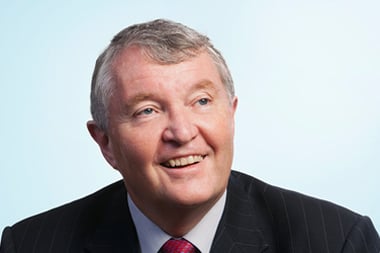Company strength key in Clasper's bid to boost middle managers

New CMI president Mike Clasper’s hugely varied background should aid his planned revolution in middle management
Ben Walker
It’s a wonder how Mike Clasper does it. The 61-year-old – already chairman of the consumer charity Which? and threads giant Coats Plc –begins his two-year CMI presidency this autumn. Something has to give. “I don’t see my beloved but currently useless Sunderland often enough,” he says, in his distinctive northeastern burr.
Yet despite the substantial challenges – and sporting sacrifices – of taking a number of roles at once, Clasper prefers it this way. He relinquished the chance to be a chief executive again in favour of taking on a raft of board appointments. The model works for him, he says, because he can bring his wisdom to bear in short, sharp bursts.
“I thrive on curiosity and new experiences,” he says, leaning back in his chair in Savoy Court, CMI’s London base. “I like the challenges of new situations, meeting new people and new organisations. The great thing about non-executive roles is that you can do a good job in a much more limited time. If you are a chief executive you can do all the working out what to do – but you’ve also got to go and do it. The time just goes in execution.”
That said, Clasper will be a relatively hands-on president. It is a consequence of his executive experience, perhaps, that Clasper considers non-executives and executives as a team when setting the future direction of a business. “I don’t believe that executives should do the strategy and the non-executives nod wisely,” he says.
Alongside a push to tap into the burgeoning wisdom of CMI’s membership base, development of middle managers will be a key focus of Clasper’s CMI premiership. “If you have got a weak middle or junior manager you are miserable and that part of the organisation doesn’t perform,” he says. “The core of what Britain needs is better middle to junior management. And we’ve got more than a million middle to junior managers. What I have in mind is training and development for them rather than throwing them in the deep end which, in practice, means they are going to get very little help. We need professional managers not accidental managers.”
With this goal in mind, the Cambridge graduate wants to see CMI further develop its successful partnerships with employers and universities. “I think we have traditionally been a provider rather than a partner,” says Clasper. “We would sell a product to a company but we hadn’t developed a programme with them. Well, we have broken the mould on that.” The model has been CMI’s seemingly unstoppable march into higher education curriculums – it already works with 77 out of the UK’s 130 business schools.
CMI’s recent work with carmaker Jaguar Land Rover has replicated that success in the corporate sector, says Clasper, and should lead to similar deals with the business world: “I think the organisation is capable of doing the same in the corporate area as it has done with higher education”. The key hurdle, he says, is that employers vary in culture, structure and scale much more than business schools. And there are many, many more of them: “Name a number that is very large and I can prove there is a bigger one.”
Still, Clasper has the right experience to overcome those challenges of scale and diversity. He has worked in so many senior executive and non-executive roles, in both the public and private sectors, that it would require another article to list them all.
He might not make it back to the Stadium of Light as regularly as he would like (it is a long way from his homes in London and the north Cotswolds), but he still makes time to play a bit of tennis, and golf, when he can. But it’s clear his love of sport is more than matched by the relish he has for his work. “There’s a lot of start-up effort” when it comes to non-executive roles, he says. “But once you understand, you can give wise advice. And its value relative to the time involved – if you are any good at it – is quite high.”
This is an extract from a longer article that will appear in a future edition of Professional Manager magazine.
For more on these issues, sign up to this CMI seminar Essential Management Skills, aimed at junior managers aspiring to middle management.
Image of Mike Clasper courtesy of Coats Plc, used by permission.

Press & Media Enquiries
For more information or to request interviews, contact CMI's Press Team on 020 7421 2705 or email press.office@managers.org.uk


